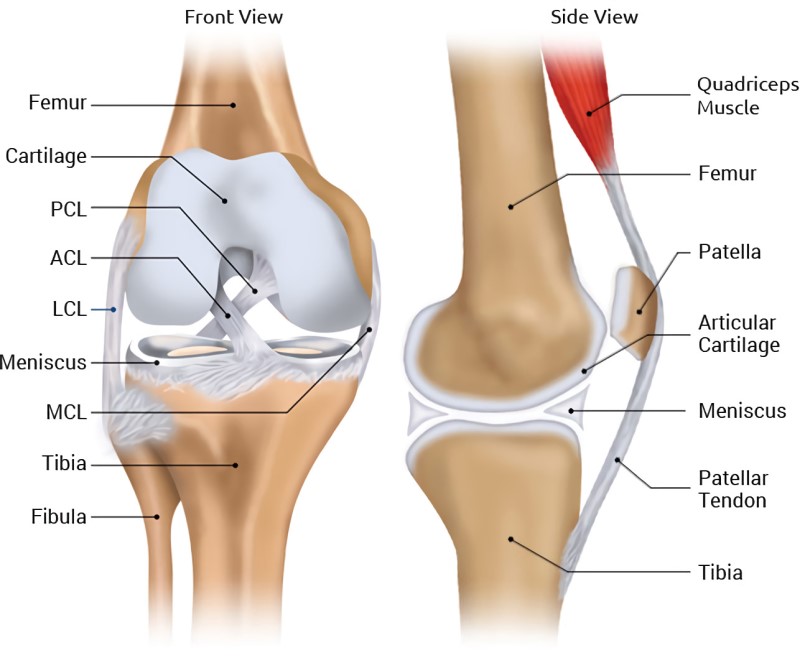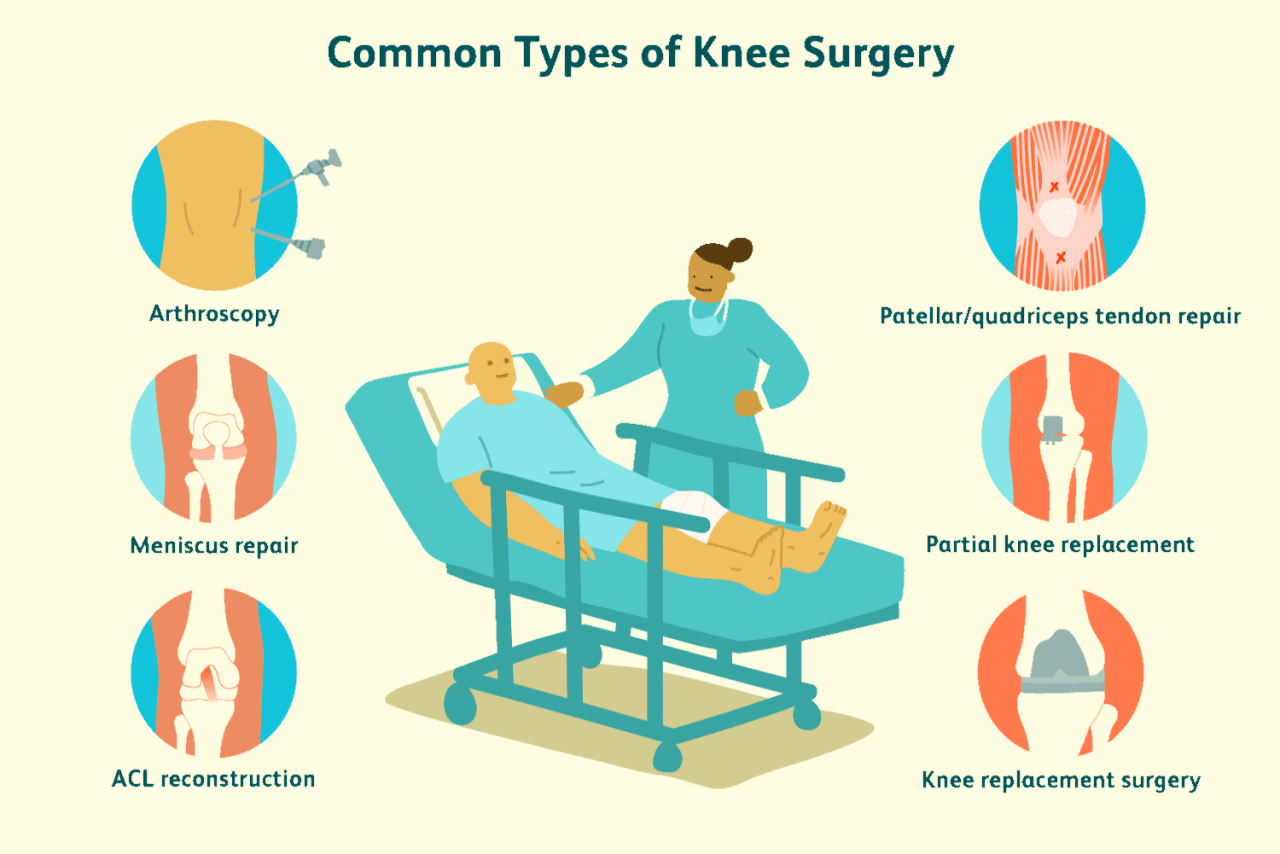Knee Pain and Surgery 2023 – When discussing knee pain, there are numerous conditions, each with its own unique treatment approach. In cases where the pain is severe, surgery may be necessary.
however, in less severe cases, a knee brace or specialized Medicare knee brace may suffice. Individuals who experience knee pain are typically cautious with their physical activities and may have limited mobility.
Knee problems frequently occur in older individuals, typically over 50 years of age, regardless of the underlying cause of the pain, whether due to aging or an injury, surgery can often provide an effective solution.
However, prior to undergoing surgery, individuals should consider a few important factors. Although surgery may be the best solution, there are potential risks associated with it.
Knee Pain and Surgery Solution
Knee pain is a common problem that affects people of all ages. It can be caused by a variety of factors, including injury, overuse, and degenerative conditions like osteoarthritis.
Knee pain can be mild or severe, and in some cases, it can be debilitating, making it difficult to perform everyday activities.
One potential solution for severe knee pain is knee surgery. Knee surgery can range from minimally invasive arthroscopic procedures to total knee replacements.
The decision to undergo knee surgery should be made after careful consideration of all other treatment options and in consultation with a qualified medical professional.
Wait Here and Click Continue Button
Encrypting your link and protect the link from viruses, malware, thief, etc! Made your link safe to visit.
Well done! you have successfully gained access to Decrypted Link.
Causes of Knee Pain

There are numerous causes of knee pain, including injury, overuse, and degenerative conditions. Common injuries that can cause knee pain include ligament tears, meniscus tears, and fractures. Knee pain can also be caused by overuse injuries, such as patellar tendonitis, which is an inflammation of the tendon that connects the kneecap to the shinbone.
Degenerative conditions like osteoarthritis can also cause knee pain. Osteoarthritis occurs when the cartilage that cushions the joint wears away over time, leading to bone-on-bone contact and pain.
Knee Surgery Options
There are several types of knee surgery options available, ranging from minimally invasive arthroscopic procedures to total knee replacements. The type of knee surgery that is recommended will depend on the underlying cause of the knee pain and the severity of the condition.
Arthroscopy is a minimally invasive procedure that involves making small incisions in the knee and inserting a tiny camera and surgical tools. Arthroscopy can be used to repair ligaments, remove damaged cartilage, and smooth rough edges of bone. Recovery time for arthroscopy is typically faster than other types of knee surgery.
Partial knee replacement is another option for knee pain. This procedure involves replacing only the damaged part of the knee joint with an artificial implant. Recovery time for partial knee replacement is typically faster than total knee replacement.
Total knee replacement is a more extensive procedure that involves removing the damaged knee joint and replacing it with an artificial joint made of metal and plastic. Recovery time for total knee replacement is longer than other types of knee surgery, but it can provide significant pain relief and improved function.
Considerations Before Knee Surgery
Before deciding to undergo knee surgery, there are several factors that should be taken into consideration. First, all other treatment options should be exhausted before considering surgery. This may include physical therapy, medication, and lifestyle changes like weight loss and exercise.
Second, the patient’s overall health should be considered. Knee surgery is a major procedure that carries some risks, including infection, blood clots, and nerve damage. Patients with preexisting medical conditions like diabetes or heart disease may be at increased risk for complications.
Finally, the patient’s goals for the surgery should be discussed with the medical professional. Knee surgery can provide significant pain relief and improved function, but it may not restore the knee to its original condition. Patients should have realistic expectations for the outcome of the surgery and be prepared for a potentially long recovery period.
Recovery from Knee Surgery
Recovery from knee surgery can be a lengthy process that requires patience and commitment. The length of the recovery period will depend on the type of surgery performed, the patient’s overall health, and the extent of the damage to the knee joint.
In general, patients will need to use crutches or a walker for a period of time after surgery to avoid putting weight on the knee. Physical therapy is typically recommended to help improve strength and flexibility in the knee and to restore range of motion.
Once a person has decided to undergo knee surgery, it is important to prepare for the procedure. This may involve making certain lifestyle changes and physical preparations. The doctor or surgeon may provide instructions on what to do before the surgery to ensure that everything goes smoothly.
After the surgery, patients typically need to undergo rehabilitation to help restore strength and function to the knee. This may involve physical therapy, exercises, and other treatments to help reduce pain and swelling and improve mobility.
Fortunately, there are many resources available to help people manage knee pain and find effective solutions to improve their quality of life. From non-surgical treatments like medication, physical therapy, and lifestyle changes, to surgical options like arthroscopy and joint replacement, there are many approaches that can help alleviate knee pain and restore normal function.
By working closely with a qualified healthcare provider, individuals can develop a customized treatment plan that is tailored to their specific needs and goals. With the right care and support, it is possible to overcome knee pain and achieve long-term relief and improved quality of life.
Consequently, individuals should ask themselves the following questions before proceeding:
How severe is the pain?
If the pain is not severe, a standard Blue Cross Blue Shield Knee Brace may suffice.
However, if the pain is severe and has persisted over an extended period, even with various treatments, surgery may be necessary.
Are there any additional health concerns related to the knee pain?
If knee pain is causing other health issues, it is advisable to consult with an experienced surgeon before proceeding with surgery.
Have all other options been tried?
Surgery should always be a last resort. Before undergoing surgery, all other treatment options, such as therapy, knee braces, medications, and exercise, should be explored.
The Blue Cross Blue Shield Knee Brace can be an excellent option before considering surgery.
What is the cost?
Surgery can be costly, sometimes running into thousands of dollars. If the pain is not severe, and a doctor indicates that a simple Medicare knee brace or other medical equipment can provide treatment, opting for the less invasive option is advisable.
Undergoing surgery when the condition is not severe may exacerbate the situation.
